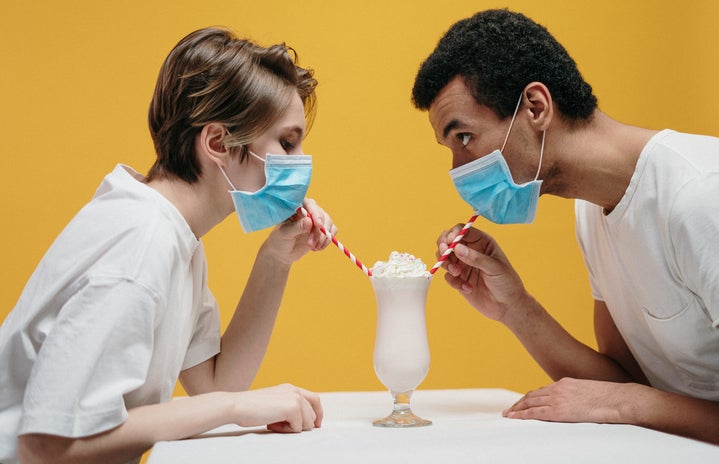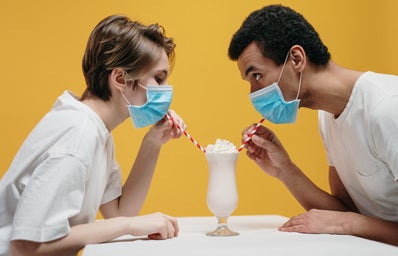Now more than ever, it has become apparent that people do not trust science especially as it relates to COVID-19. It ranges from vaccine distrust to absolute denial that COVID-19 even exists. Like most issues, there are many reasons why.
Ew, Change :(
While I am in no way an expert on human behaviour, enough research has been done to show that humans, as a species, do not like change. In fact, in a 2019 study conducted by Watzek, Pope, and Brosnan, measured how two species of monkeys compared to humans when asked to learn a shortcut after already having an established method for completing a task. Overall, it was shown that both species of monkeys performed the shortcut in a significantly less period of time than humans did, showing how humans are less adapted to change. While we may not know why this is, we can use it to show how a person will resist any activity that disrupts their normal routine, such as the mask mandates, capacity restrictions, and increased vigilance surrounding COVID-19. Perhaps people refuse to believe the science of COVID-19 because they are so resistant to changing their routine.
Fear & Denial
Another possible reason for this distrust of science is simply fear. Most people alive today have never experienced an epidemic (of course those who lived through AIDS or Ebola have seen events like these before), much less a pandemic of this magnitude and deadliness. Sometimes, denial is an immediate response to fear; like partying and traveling at the beginning of the pandemic, and they will eventually move into more rational responses. However, people will get stuck in this stage of denial (see pandemic denying) and that’s when it becomes dangerous.
While the above explanations are good, they can only explain up to a certain level of distrust. I believe there are two things most to blame for this new age of distrusting science: media and misunderstanding.
Misinformation
Like with every other issue, the media is notorious for spreading misinformation, especially scientific information, often reporting “cures”, research results, and medical facts and figures without first checking how reliable or accurate those reports are. Media outlets are trusted, especially those like FOX News which has come under fire recently for their misinformed reporting. They also manipulate the information given to them by the professionals, forcing professionals to defend themselves and look less authoritative. Premature reporting also means the information given to the public is always changing. The more it changes, the more confusing it gets, and the easier it is to think that professionals don’t know what they’re talking about. This creates distrust in doctors, researchers and other medical professionals trying to find an answer to a health crisis most have not experienced before. Another new invention, the internet! First chat rooms and now social media, the internet has given us many new ways to meet strangers across the world. This way, people with similar ideas and life situations can find each other and talk. However, this has allowed people to find others that believe in the same misinformation and egg each other on. It has also allowed people to come together and form groups and protests that are dangerous to public health, like anti-mask protests.
Share the Wealth
Finally, the main reason that I believe people don’t trust science is because they just don’t understand it. Right now, scientists and researchers are only focused on the research; on finding the answers and talking about them amongst themselves. At first glance some of this research seems irrelevant, however, it actually benefits the general public, only no one can understand it. Research papers are full of niche scientific concepts and complicated industry jargon that most people just can’t understand, and no one is doing anything to try and remedy that. In order for people to begin to trust science again they have to understand it. This is why communication in science is so important. In order for everyone to benefit, everyone has to understand.
Science has taken a real hit these past two years. Due to misinformation being spread like wildfire, fear, and research that is hard to understand, people distrust science more than ever, and that can be dangerous.
References:
Watzek J, Pope SM, Brosnan SF. Capuchin and rhesus monkeys but not humans show cognitive flexibility in an optional-switch task. Scientific Reports. September 13, 2019; 9: article number 13195. https://www.nature.com/articles/s41598-019-49658-0


